Memphis Beyond Graceland: Stax Museum of American Soul Music
Last updated on February 15th, 2024 at 12:07 am
Memphis, Tennessee, known as the Home of the Blues and the Birthplace of Rock & Roll, is also where many of the biggest names in soul music—Otis Redding, Isaac Hayes, Carla Thomas, and others—got their start. Visit the Stax Museum of American Soul Music to experience the history of the unique sound of Memphis soul.
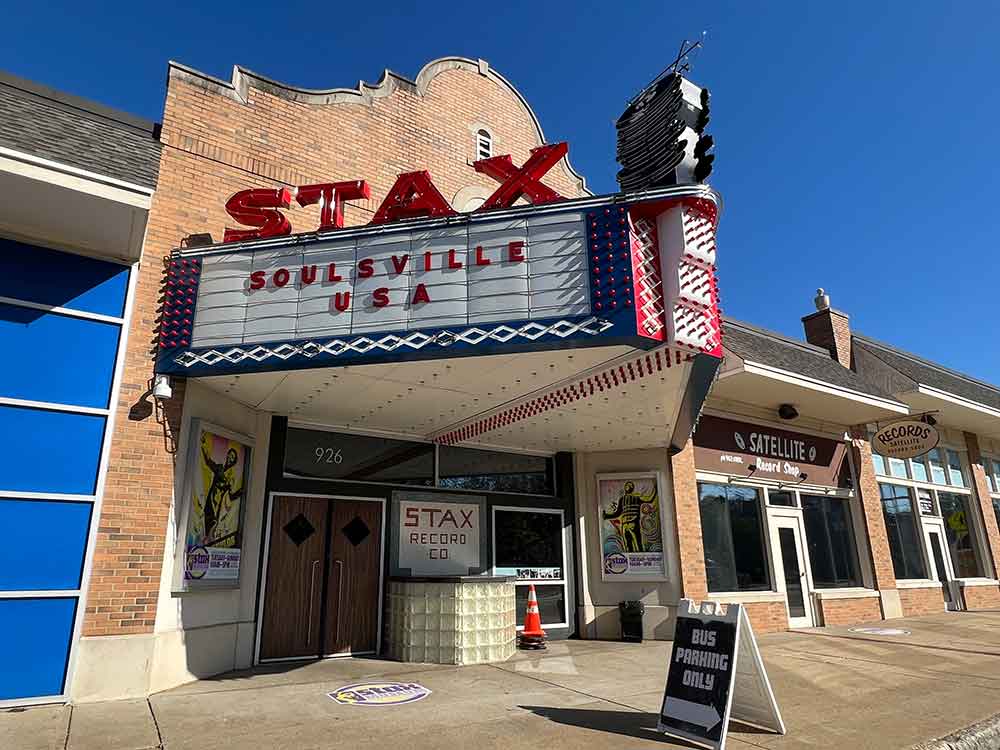
Stax Museum of American Soul Music is located at 726 S. McLemore St. in Memphis. © Debbra Dunning Brouillette
On past trips to Memphis, I had visited Sun Studio, the Memphis Rock and Soul Museum and the Memphis Music Hall of Fame, but until my most recent visit in November 2023 I had never made it to the Stax Museum of American Soul Music.
Satellite Records became Stax in 1960
The Stax Museum of American Soul Music, opened in 2003, traces its roots back to 1957 when Satellite Records was founded by Jim Stewart and his sister, Estelle Axton. In 1960, the studio was moved to McLemore Avenue in Memphis and became Stax.
How did Stax get its name? It’s a combination of the first two letters of the brother-sister founders: Stewart and Axton
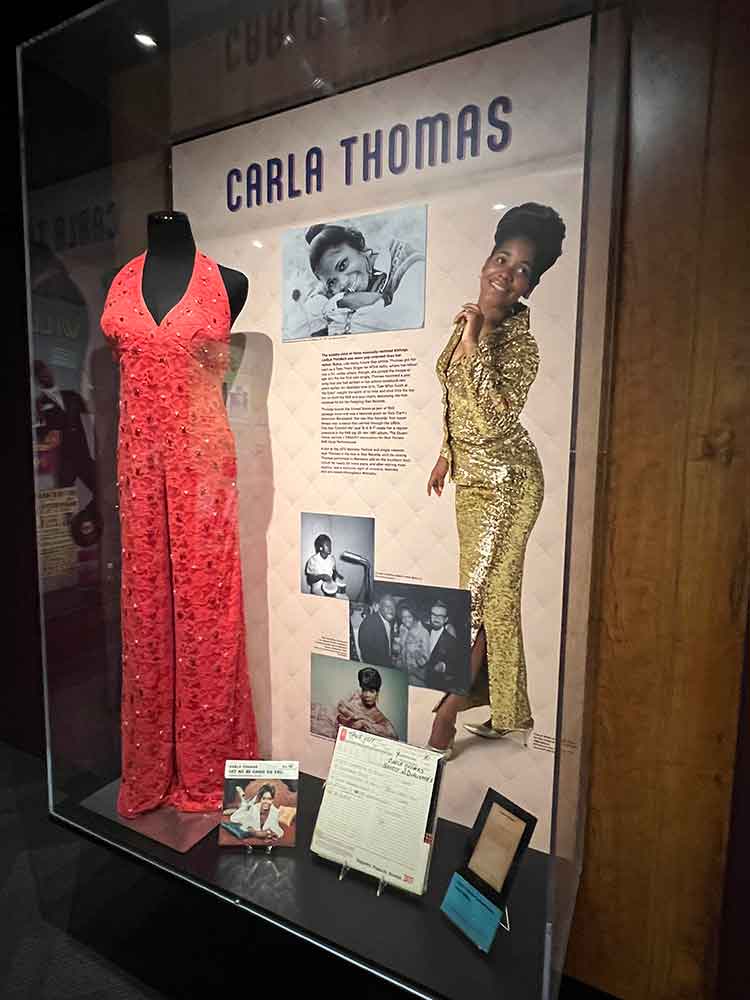
Carla Thomas, often referred to as the Queen of Memphis Soul, is the daughter of Rufus Thomas. Her most famous single was, “Gee Whiz (Look at His Eyes). © Debbra Dunning Brouillette
The recording studio cranked out plenty of hits in the early 1960s by Carla Thomas, the Mar-Keys, Booker T. and the MGs, Rufus Thomas, William Bell and Otis Redding.
When the Rufus and Carla Thomas single, “Cause I Love You,” became a regional hit, Atlantic Records’ Jerry Wexler offered Stax a distribution deal. That move paved the way for Stax records to get into stores across the country.
SLIDESHOW: The Wall of Sound – where the walls are lined with floor-to-ceiling cases containing all of the albums and singles released by Stax and its subsidiary labels from 1957–1975.
Milestones in Stax History
1962 — Otis Redding, who would later become the label’s biggest star, arrived with a group who’d come to Stax to record an instrumental demo. He was their chauffeur, but was given the chance to sing after the group’s session ended badly. By the end of that week, he was signed to a contract with Stax. The song, “These Arms of Mine,” became one of Stax’s first big hits. You can listen to it below.
1967 — Al Bell, Otis Redding, Eddie Floyd, Carla Thomas, the MGs and the Mar-Keys took off on Stax’s first European Tour. In November, 1967, Otis Redding recorded “(Sittin’ by) The Dock of the Bay.” He was tragically killed in a plane crash weeks later. The song’s posthumous release hit No.1 on the Billboard Hot 100. It was Redding’s first time at the top of the chart. The following year, the song earned a GRAMMY®.
1967-1968 — Atlantic Records (Stax’s distributor) was sold to Warner Bros. When negotiations to strike a new deal failed, Stax lost one of its most successful acts, Sam and Dave, along with most of the songs they’d recorded while there. However, the label still had many other talented musicians, songwriters and producers.
SLIDESHOW: More things you will see on your tour…
1969 — When co-founder, Estelle Axton left Stax, Al Bell became vice president. Through his efforts, 1969 became a banner year. It has been called the Soul Explosion. A total of 30 singles and 27 albums were recorded in eight months at Stax. Isaac Hayes became one of its biggest stars. His “Hot Buttered Soul” record sold more than 3 million copies that year.
 By late 1971, in the wake of Shaft, Isaac Hayes had won both a Grammy and an Academy Award and was one of the biggest superstars in American music. In 1972, Isaac Hayes had become a soul music powerhouse. He negotiated in his contact a $26,000 peacock-blue gold-plated Cadillac. It was insured by Lloyd’s of London and boasted a refrigerated bar, a television set, and 24-Karat gold exterior parts.
By late 1971, in the wake of Shaft, Isaac Hayes had won both a Grammy and an Academy Award and was one of the biggest superstars in American music. In 1972, Isaac Hayes had become a soul music powerhouse. He negotiated in his contact a $26,000 peacock-blue gold-plated Cadillac. It was insured by Lloyd’s of London and boasted a refrigerated bar, a television set, and 24-Karat gold exterior parts.
1970s — The studio went through a series of changes and upheavals, including an involuntary bankruptcy that finally ended Stax in 1976. The Stax catalog was sold to Fantasy Records and new music was released until 1979.
Elvis at Stax – 1973
 Elvis recorded during two sessions at Stax, in July and December 1973, resulting in 28 tracks spread over three albums. They include: Raised On Rock (1973), Good Times (1974) and Promised Land (1975). The Stax sessions resulted in Top 40 singles such as “My Boy,” “Promised Land,” “If You Talk In Your Sleep,” and “I’ve Got A Thing About You Baby.” A 40th Anniversary Deluxe Box Set commemorating the Stax sessions was released in 2014..
Elvis recorded during two sessions at Stax, in July and December 1973, resulting in 28 tracks spread over three albums. They include: Raised On Rock (1973), Good Times (1974) and Promised Land (1975). The Stax sessions resulted in Top 40 singles such as “My Boy,” “Promised Land,” “If You Talk In Your Sleep,” and “I’ve Got A Thing About You Baby.” A 40th Anniversary Deluxe Box Set commemorating the Stax sessions was released in 2014..
1989 — The original building was razed but local leaders formed the Soulsville Foundation in the late 1990s. It became the parent organization for the Stax Museum of American Soul Music, the Stax Music Academy (2000), and the Soulsville Charter School (2005). The mission of the Soulsville Foundation is “to preserve, promote, and celebrate the many unique cultural assets of the Soulsville, USA neighborhood in Memphis, while supporting the development of new educational and community-building opportunities.”

Stax Music Academy, located next to Stax Museum of American Soul Music, is a unique learning center that provides at-risk youth with mentorship, high-quality music education and performance opportunities. © Debbra Dunning Brouillette
1991 — The Stax Complete Singles Box Set, which contained all of the Stax and Volt singles retained by Atlantic Records, was released in 1991. The book “Soulsville USA: the Stax Records Story” was released in 1997.
2003 — The Stax Museum of American Soul Music opened in 2003 as the first and only museum dedicated to telling the story of soul music.
When You Visit
Hours: Open Tuesday-Sunday, 10am-5pm. Closed Mondays, Easter Sunday, Thanksgiving Day, Christmas Day; General Admission: $15 (Adults), $12 (62+, Veteran, Military, AAA discounts); $10 Children (7-12); Free (Ages 6 and under).
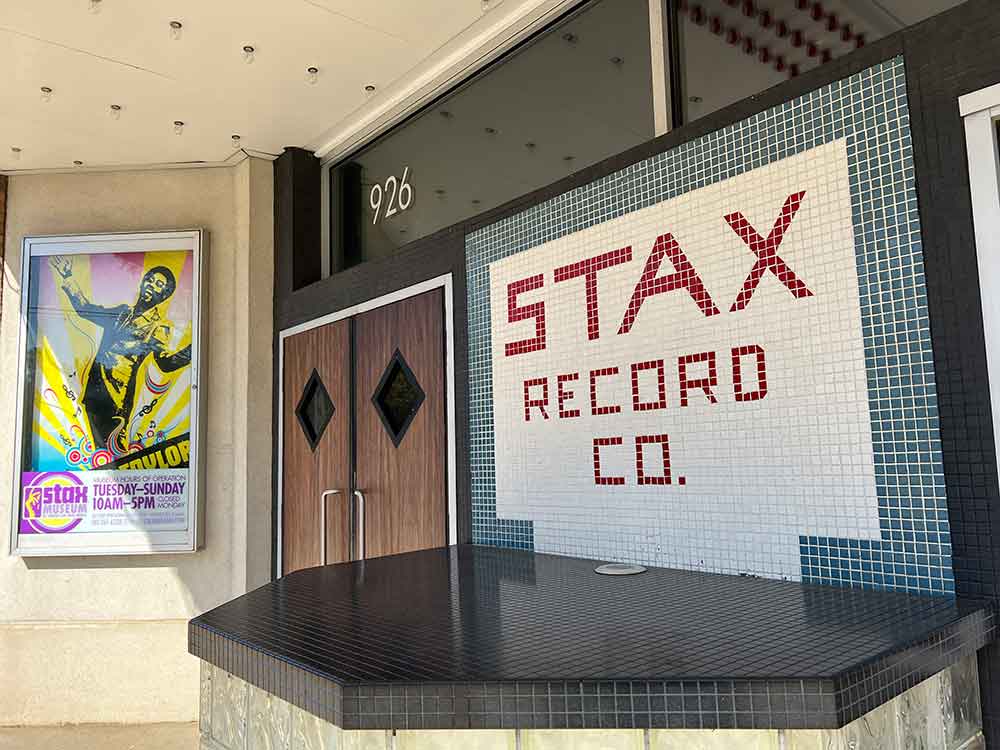 926 E. McLemore Ave, Memphis, TN 38106; Phone 901-261-6338; Toll-Free 888-942-7685
926 E. McLemore Ave, Memphis, TN 38106; Phone 901-261-6338; Toll-Free 888-942-7685
For more information, go to the website: Stax Museum of American Soul Music
Check out items available to purchase in their Store.
Thanks to Memphis Travel for providing attraction passes on my recent visit.
Other Memphis posts:
Visiting Graceland and the Elvis Presley’s Memphis Entertainment Complex
Memphis Beyond Graceland: Sun Studio
Memphis Beyond Graceland: The National Civil Rights Museum
Memphis Beyond Graceland: Where to Eat – Gourmet to Budget


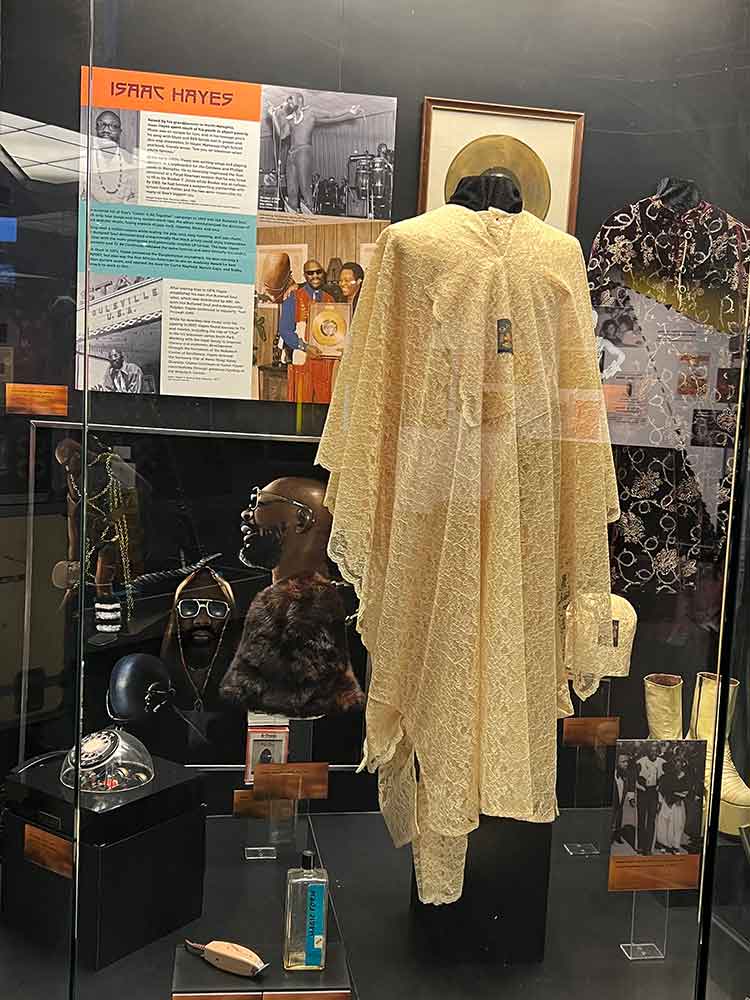
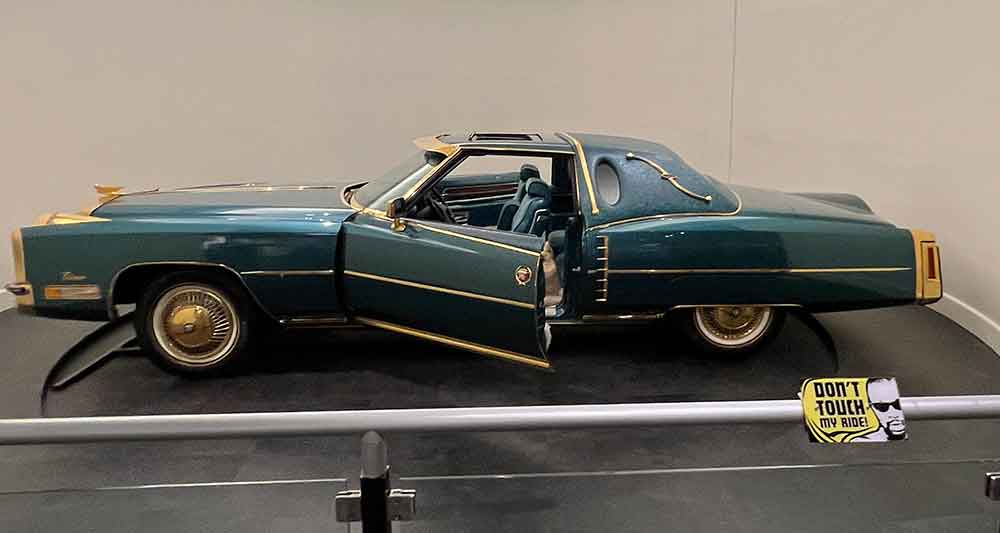
I know you have a fascination with Elvis and his music, so I’m not surprised to see you also visited the Museum of American Soul Music. It looks like THE place to visit if you like rock & roll and blues. I’m also in love with this kind of music, so if I ever make it to Memphis I’ll have to visit this museum. It’s funny that we visited so many of the States and yet never made it to Tennessee.
You really need to plan a visit to Memphis, Tennessee! It’s one of my favorite U.S. cities for many reasons. (Put Nashville, Tennessee on your list, too!)
Pingback: Visiting Graceland and Elvis Presley’s Memphis™ entertainment complex - Tropical Travel Girl